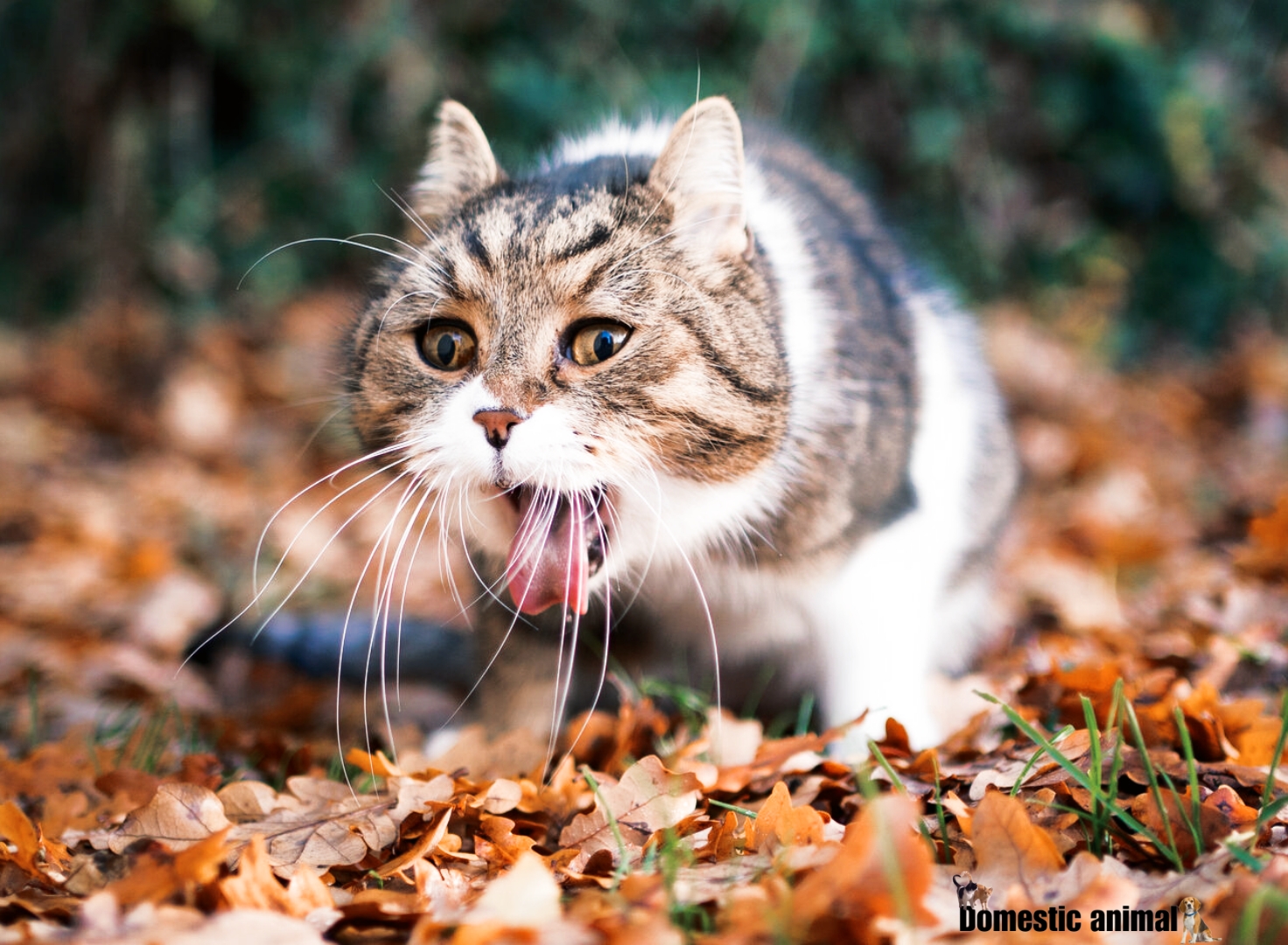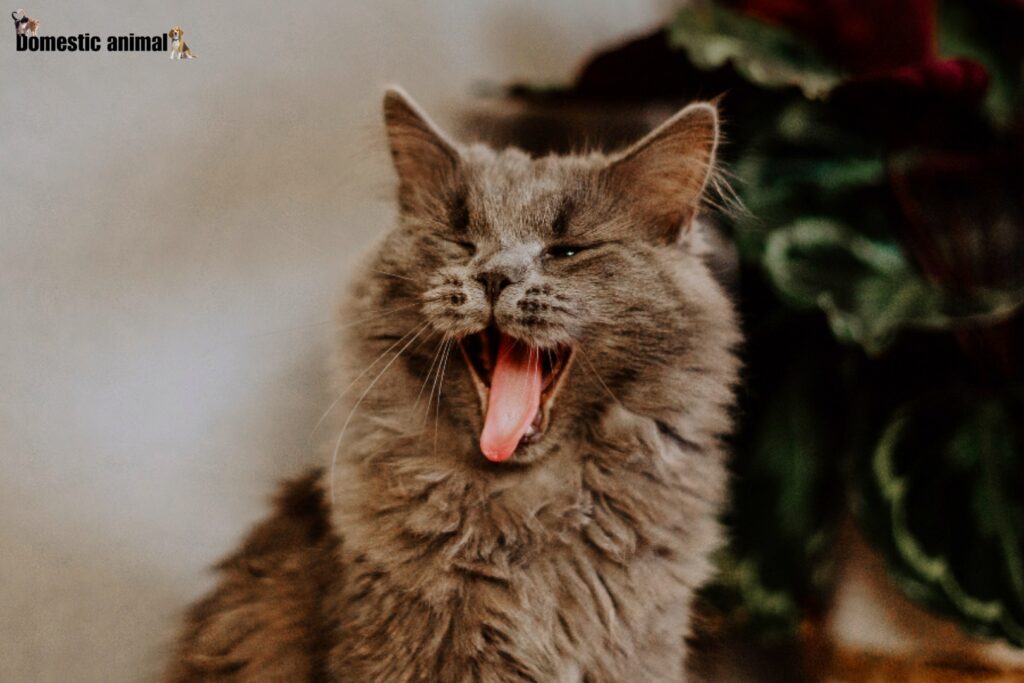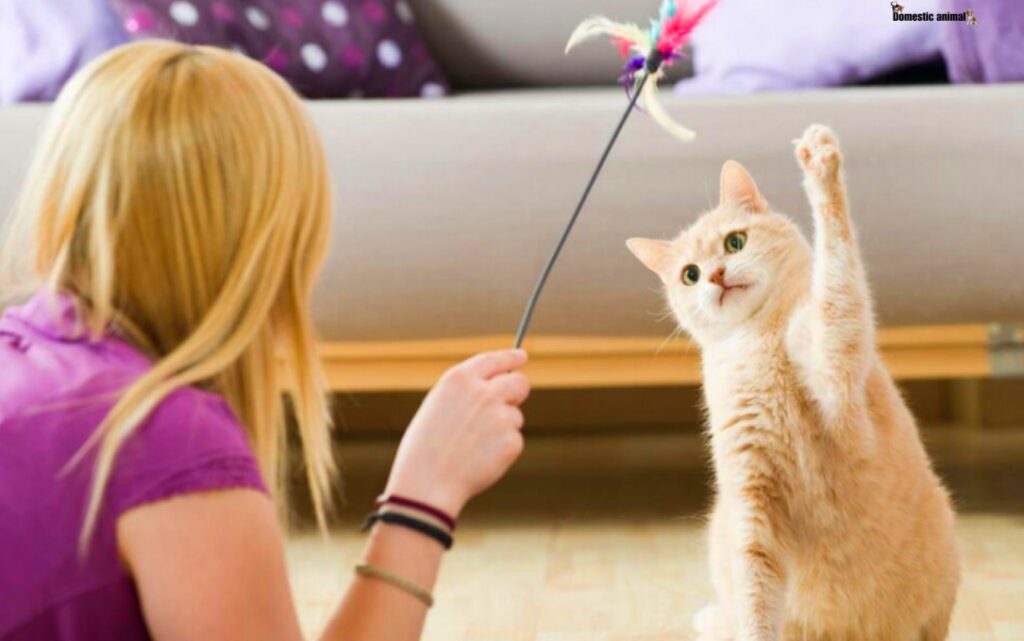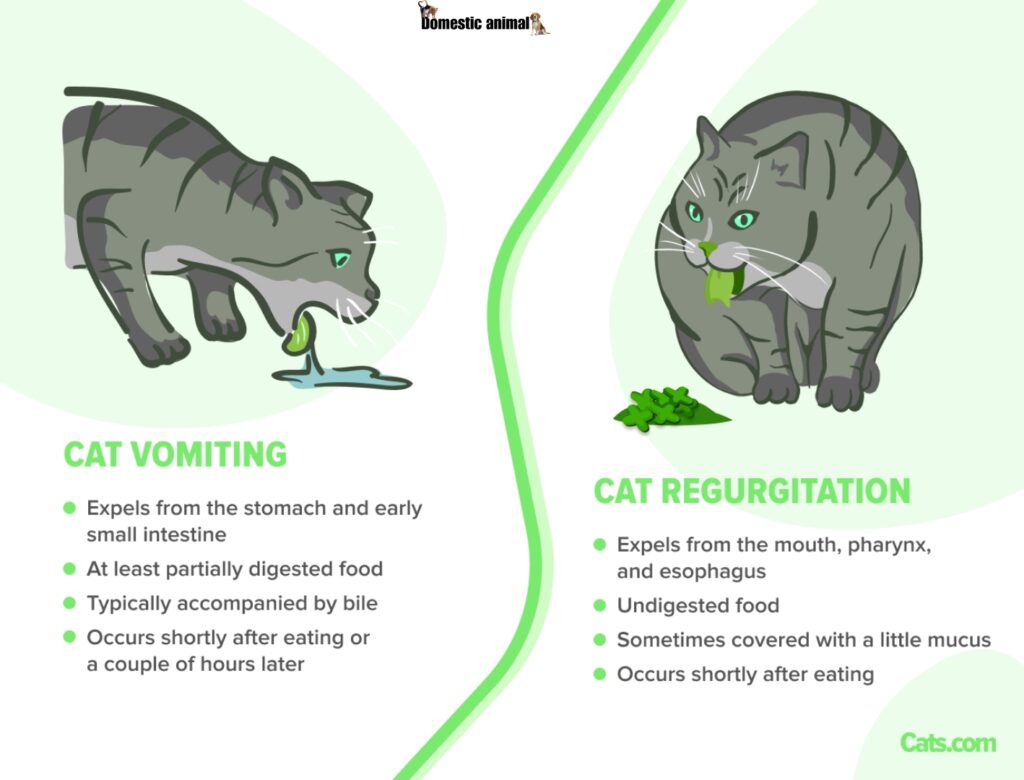Cats gag at food due to hairballs, dental issues, or digestive problems. These can cause discomfort and require attention.
Cats may gag due to a variety of reasons, including hairballs, dental issues, or digestive problems. It is essential to monitor your cat’s eating habits and behavior to ensure their well-being. If gagging persists, consult a veterinarian for proper diagnosis and treatment.
Be attentive to any changes in your cat’s appetite or overall health, as these could be signs of underlying issues. Providing a balanced diet and regular check-ups can help prevent and address potential gagging episodes in your feline companion.
Common Reasons Cats Gag At Food
Cats are known for their finicky eating habits, and occasionally, you may notice your feline friend gagging at their food. Here are some common reasons why cats may exhibit this behavior:
Hairballs
Hairballs: Hairballs may cause cats to gag at their food, particularly if they have ingested a significant amount of fur during grooming.
Sensitivity To Ingredients
Sensitivity to Ingredients: Cats may gag at their food if they have a sensitivity or allergy to certain ingredients in their diet.
Eating Too Fast
Eating Too Fast: Cats that consume their food quickly may gag, as it can lead to swallowing air along with their food.
Signs Your Cat Is Gagging At Food
If you notice your cat making coughing or retching sounds, or if they are vomiting after eating, it could indicate that they are gagging at their food. Understanding these signs can help you address any issues your cat may be experiencing and ensure they are getting the proper nutrition they need.
Coughing Or Retching Sounds
Cats may produce coughing or retching sounds while gagging at food, which can be alarming for pet owners. This can occur when the cat has difficulty swallowing due to an obstruction, irritation, or issue with the gastrointestinal tract.
Vomiting After Eating
Vomiting after eating is another sign that your cat may be gagging at their food. If your cat consistently vomits shortly after eating, it could be a sign of various health issues, such as food intolerance, gastrointestinal problems, or even the presence of hairballs.
Importance Of Addressing Gagging Behavior
Cats gagging at food is not uncommon and can be caused by a range of issues, from hairballs to allergies or dental problems. Addressing gagging behavior in cats is important to identify and treat the underlying cause, to ensure their overall health and well-being.
Observing the frequency and triggers of gagging can help in assisting your pet with the right care.
Gagging behavior in cats may seem harmless at first, but addressing it is crucial for their overall well-being. Not only can it indicate potential health issues, but it can also impact their quality of life. By understanding the importance of addressing gagging behavior, you can take proactive steps in preventing potential health issues and improving your feline friend’s overall quality of life.
Preventing Potential Health Issues
When cats gag at their food, it could be a sign of an underlying health problem that needs attention. Some common causes of gagging include dental issues, gastrointestinal problems, allergies, or even ingestion of foreign objects. Ignoring these signs can escalate the problem and lead to more severe complications. To prevent potential health issues, it is essential to monitor your cat’s eating habits and consult with a veterinarian if you notice persistent gagging or any other abnormal behavior. Regular dental check-ups, a balanced diet, and providing appropriate chew toys can also contribute to maintaining your cat’s oral health and preventing issues that may cause gagging.
Improving Overall Quality Of Life
Gagging at food can be uncomfortable and distressing for cats, affecting their overall quality of life. It may discourage them from eating, leading to poor nutrition and weight loss. Additionally, repeated gagging can cause stress and anxiety, further impacting their emotional well-being. By addressing gagging behavior promptly, you can help improve your cat’s overall quality of life. Ensuring that their food is easily chewed, providing a calm feeding environment, and monitoring their eating habits can make mealtimes enjoyable for your furry companion. Seeking professional advice and implementing suitable interventions can alleviate any underlying issues, allowing your cat to eat comfortably and enthusiastically. Remember, understanding the importance of addressing gagging behavior in cats is essential for their health and well-being. By preventing potential health issues and improving their overall quality of life, you can ensure that your feline friend remains happy and healthy for years to come.
Actionable Solutions To Help Your Cat
Discover effective techniques to help your cat with gagging issues when it comes to their food. Explore actionable solutions and understand the reasons behind why cats gag, making mealtime a more enjoyable experience for your furry friend.
Slow Feeding Techniques
If your cat frequently gags at food, implementing slow feeding techniques can make a big difference. By slowing down your cat’s eating pace, you can help prevent them from gulping down their food too quickly, which often leads to gagging and vomiting. Here are a few actionable solutions to try out:
- Use a Slow Feeder Bowl: Invest in a specially designed slow feeder bowl with built-in obstacles or raised patterns. These features will force your cat to eat around them, making it harder for them to gobble up their food in one go.
- Divide Meals into Multiple Smaller Portions: Instead of giving your cat one big meal, try dividing their daily portion into smaller, more frequent meals. This will not only slow down their eating pace but also prevent overeating.
- Introduce Puzzle Feeders: Puzzle feeders are a great way to engage cats during mealtime. These interactive toys require your feline friend to work for their food, which naturally slows down their eating process.
Dietary Adjustments
In some cases, certain dietary adjustments can help alleviate your cat’s gagging issue. Consider the following actionable solutions to ensure your furry friend’s mealtime is more enjoyable:
- Switch to Wet Food: Dry kibble can be difficult to chew and swallow, especially for cats prone to gagging. Transitioning to wet food can provide a softer texture that is easier for them to eat and digest.
- Choose Smaller Kibble: If you prefer to stick with dry food, opt for smaller-sized kibble pieces. These are easier for cats to chew and less likely to trigger gag reflexes.
- Moisten the Food: Adding a bit of warm water or low-sodium broth to your cat’s dry food can help soften it, making it easier for them to eat without gagging.
Hairball Remedies
If your cat frequently coughs or gags around mealtime, it could be due to hairball issues. Actionable solutions for dealing with hairballs include:
- Regular Brushing: Brushing your cat’s fur daily helps to remove loose hair and prevent excess hair from being ingested during grooming, reducing the likelihood of hairball formation.
- Use Hairball Remedies: Hairball remedies such as specialized cat treats or lubricating gels can aid in breaking down and passing hairballs through the digestive tract more easily.
- Offer Digestive Supplements: Digestive supplements containing ingredients like psyllium husk can help promote healthy digestion and prevent hairballs from causing discomfort.
Consulting A Veterinarian
Consulting a Veterinarian is crucial if you notice your cat gagging at food. A veterinarian can provide professional advice, make an accurate diagnosis, and recommend appropriate treatment options to help your feline companion overcome this issue.
Professional Advice And Diagnosis
When your cat displays abnormal gagging behavior, seeking professional advice from a veterinarian is essential. Veterinarians possess the expertise to analyze your cat’s symptoms, conduct physical examinations, and may recommend additional diagnostic tests to identify the underlying cause of the gagging.
Consulting a veterinarian enables you to receive a precise diagnosis, allowing for targeted treatment recommendations to address the root cause of your cat’s gagging. Veterinarians can provide personalized advice based on your cat’s medical history, ensuring the best course of action.
Treatment Options
Upon receiving a diagnosis, veterinarians can recommend suitable treatment options tailored to your cat’s specific condition. Treatment may involve a combination of medication, dietary changes, or behavioral modifications to alleviate your cat’s gagging episodes.
By consulting a veterinarian, you gain access to professional guidance on how to manage your cat’s condition effectively. Following the prescribed treatment plan can help improve your cat’s overall well-being and reduce instances of gagging at food.
Creating A Stress-free Feeding Environment
Discover why cats gag at their food and how to create a stress-free feeding environment for your feline friend. Gain insights on common triggers and effective strategies to ensure a peaceful mealtime experience.
Quiet And Private Feeding Area
Ensure cats have a calm, low-stress area to eat without distractions. Provide a private space, away from loud noises and other pets.
Routine And Consistency
Stick to a feeding schedule, offering meals at the same time each day. Consistency helps cats feel secure and reduce anxiety.
Monitoring Your Cat’s Progress
Tracking Food Intake And Symptoms
Record what your cat eats and any reactions witnessed.
Keep an eye out for unusual behavior or changes in appetite.
Adjusting Strategies As Needed
Stay flexible and willing to modify feeding methods as required.
Consult with a vet if issues persist despite adjustments.
Frequently Asked Questions Of Why Do Cats Gag At Food
Why Do Cats Gag At Food?
Cats may gag at food due to hairballs, dental issues, or food allergies. It could also indicate a potential health problem, so it’s important to monitor your cat’s behavior and consult a vet if the gagging persists.
What Should I Do If My Cat Gags At Food?
If your cat frequently gags at food, consult a veterinarian to rule out any underlying health issues. Additionally, try feeding smaller portions, incorporating hairball remedies, and ensuring proper dental care to alleviate any potential causes of gagging.
Can Certain Foods Trigger Gagging In Cats?
Yes, certain foods can trigger gagging in cats, especially if they are allergic to specific ingredients. It’s important to pay attention to your cat’s diet and consider potential food allergies or sensitivities as a cause for their gagging episodes.
Conclusion
Understanding why cats gag at food is important for their health. By recognizing potential causes such as dental issues or food sensitivities, owners can ensure their cats receive proper care. Consulting a vet and providing a balanced diet can help prevent gagging and keep cats happy and healthy.



